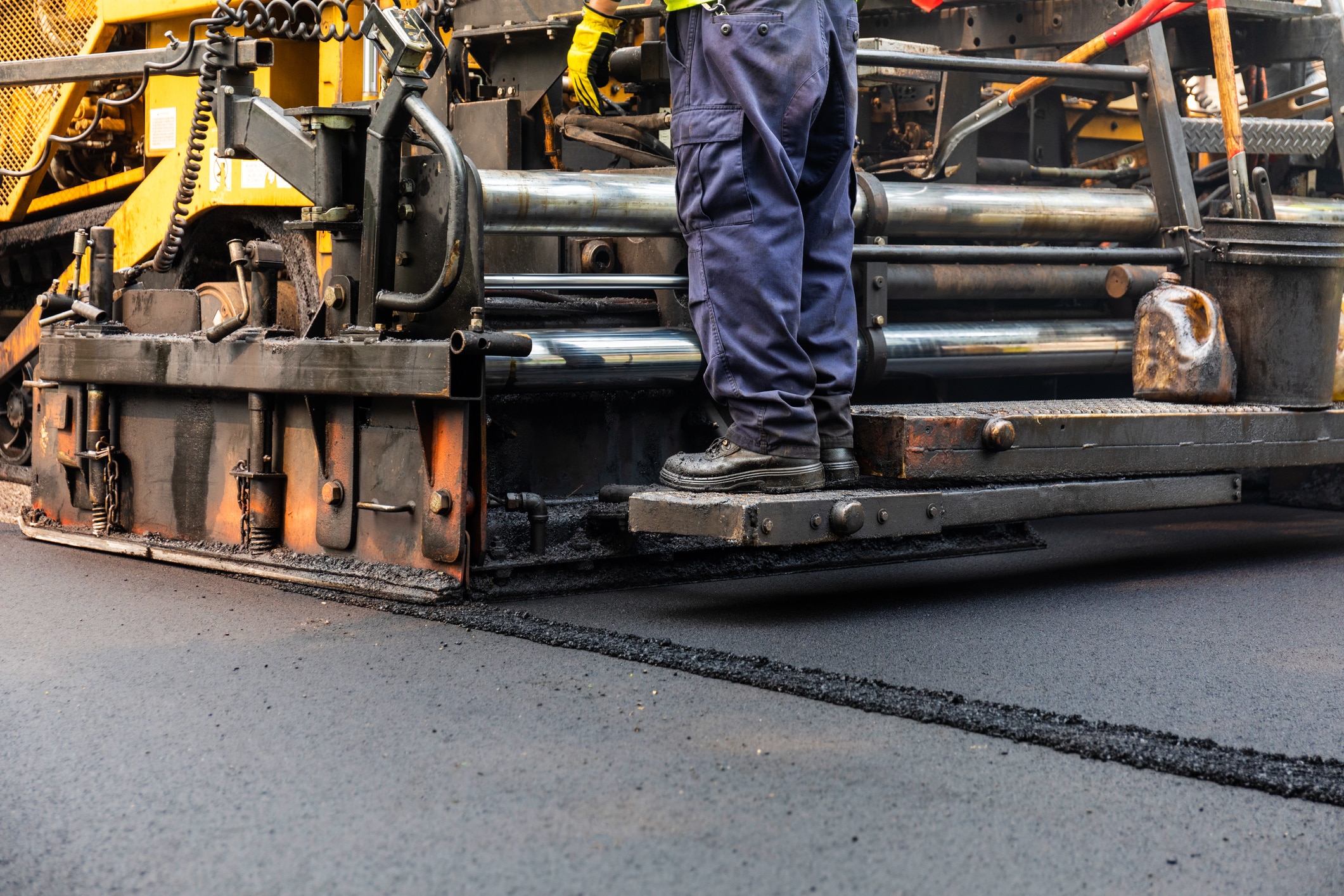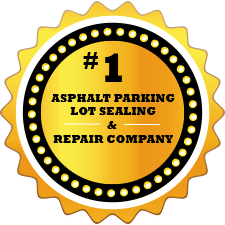Expert Parking Lot Striping Services For Asphalt vs. Concrete: What’s the Difference?
When you’re considering a new driveway or parking lot, one of the biggest questions is: “will asphalt or concrete work best?”
Both surfaces have their advantages and disadvantages, but the choice really comes down to your application. Let’s explore the difference between asphalt and concrete and which might be better for your project.
Composition Difference of Asphalt vs. Concrete
 Asphalt is typically made of gravel, sand and crushed stone (called “aggregates”) with a petroleum-based binding agent. The binding agent is what gives fresh asphalt its black color and tar-like odor. Over time, the asphalt fully hardens or “cures” and takes on a gray color. Periodic resealing will restore the fresh black surface. Many home and business owners like the sleek and clean look of asphalt paving.
Asphalt is typically made of gravel, sand and crushed stone (called “aggregates”) with a petroleum-based binding agent. The binding agent is what gives fresh asphalt its black color and tar-like odor. Over time, the asphalt fully hardens or “cures” and takes on a gray color. Periodic resealing will restore the fresh black surface. Many home and business owners like the sleek and clean look of asphalt paving.
Concrete is also made using aggregates, but the binding agent is different. Concrete uses a gray cement-water paste that hardens into stonelike mass. Concrete continues to harden for years after application, meaning it gets stronger as it gets older.
Different elements can be added to concrete, giving it more versatility. The addition of small stones can aid in drainage and greatly reduce the likelihood of potholes. Concrete can also be tinted or stamped to complement the look of your home or business.
Durability of Asphalt vs. Concrete
On average, a paved concrete surface can last up to 40 years with little maintenance, while an asphalt surface can last up to 15–20 years and requires sealing every few years. However, this isn’t the end of the story. Temperatures play a role.
Concrete can crack in freezing temperatures. When water enters the cracks and freezes, over time the freeze-thaw cycle can make the cracking worse. Asphalt stands up to freezing temperatures better, but can soften and become oily in extreme heat. Over time, the soften-harden cycle can lead to cracking if not properly remedied.
It’s best to talk with your paving contractor about the best material for your climate. In warmer, Southern climate areas, a concrete parking lot or driveway may be a better choice, whereas cold climates may do better with asphalt.
Asphalt vs. Concrete Costs
For driveways, the initial cost to install an asphalt or concrete driveway is comparable. One may be higher than the other depending on your region and the current cost of materials, but initial cost isn’t the biggest factor between the two.
When it comes to asphalt versus concrete parking lots, the equation changes. Asphalt parking lots have a lower installation cost and can typically be done within a few days depending on the size of the project. Concrete can take twice as long to install. An asphalt parking lot can be ready for vehicle traffic in 48–72 hours (depending on the weather conditions), whereas a concrete parking lot can take up to a week. If you have a store or other public-facing business, a lack of parking or poor access could have a significant impact on sales.
You should take into consideration long-term costs. Asphalt is by far the most common paving choice for parking lots due to its lower initial cost and quick installation. However, it does require sealcoating every few years while concrete typically requires only an annual joint sealing. Sealcoating is an expense and business disruption to consider. Concrete parking lots need cleanings with power washing equipment to prevent stains that show up more readily on the light surface.
While concrete can last up to twice as long as asphalt (again, climate is a factor), asphalt is cheaper to replace. Concrete must be redone, whereas with asphalt only the top layer must be repaved—provided the parking lot has been properly sealed and maintained to prevent damage to the base layers. The top layer can be ground up and recycled for other uses.
Pervious Concrete vs. Porous Asphalt
When deciding between porous asphalt and pervious concrete, you need to consider the pros and cons of each. For one thing, installing pavement takes up more space than traditional installations because it’s thicker (with 6″ versus 3″). This may be an issue if your lot size doesn’t allow for such large spans or heights without setback challenges from other structures on site like buildings.
Additionally, though both materials cost roughly 20%+ above their counterparts, concrete paving requires slightly higher prices due to its more significant weight requirements. Contractors will likely bill out accordingly.
Finally, maintenance for porous surfaces can be a bit more complex than standard ones. UNH suggests sweeping, pressure-washing, and vacuuming both types of pavement every three months with regular visual inspections to ensure that they are still in good shape. Pervious concrete is less maintenance intensive, but it’s important not to miss any signs or cracks before things worsen.
Need an asphalt parking lot or driveway in the Wichita area? Give us a call.
At South Central Sealing & Paving we believe in doing things right the first time. We don’t cut corners and we abide strictly to all applicable specs. The result is a final product that lasts longer!
Give us a call at (316) 613-0192 or request an estimate online now!





Write a Comment